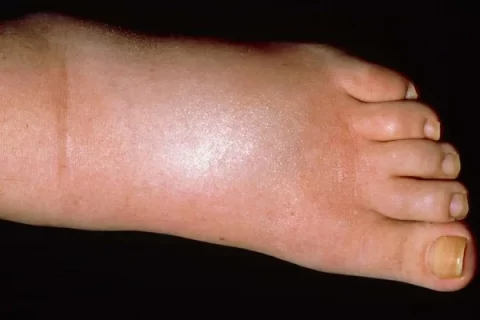Obesity
Introduction
Obesity is a medical condition characterized by excessive body fat accumulation that poses health risks. It is typically measured using the Body Mass Index (BMI), with a BMI of 30 or higher classified as obese.
This medical condition raises the risk of several other illnesses and health issues. Heart disease, diabetes, hypertension, hypercholesterolemia, liver disease, sleep apnea, and several types of cancer are among them.
Some people struggle to lose weight for various reasons. Obesity is frequently caused by a combination of environmental, physiological, and genetic variables, as well as decisions about nutrition, exercise, and physical activity.
The good news is that obesity-related health issues can be avoided or improved with even a small weight decrease. You may lose weight by changing your habits, eating a better diet, and exercising more. Other options for treating obesity include weight-loss methods and prescription drugs.
Obesity: what is it?
When you have too much body fat, you are considered obese. This complicated and chronic illness can have an impact on your general health and quality of life. Obesity can result in major health problems. It may have an impact on your mental health and sense of self.
Obesity and overweight are defined by the World Health Organization (WHO) as “excessive fat accumulation that presents a risk to health.” Body fat may be calculated using a variety of methods, each with varying degrees of accuracy and potential drawbacks. One technique for checking for excessive body fat is the body mass index or BMI. Overweight is defined as having a BMI of more than 25, while obesity is defined as having a BMI of more than thirty.
You are not alone if you are obese. Two out of every five persons in the US suffer from this prevalent illness. Finding the right therapies and health management techniques might be aided by a healthcare professional.
Which symptoms are associated with obesity?
Although it is an illness, obesity does not have any particular symptoms. To determine what constitutes obesity, a medical professional may compute your:
- The BMI calculates the difference between the average height and weight of the body. To categorize obesity, medical professionals utilize BMI.
- Measurements of your waist circumference may be taken by providers.
- extra visceral (abdominal) fat that exceeds the total quantity of body fat in other parts
- a waist circumference of at least 40 inches for men and 35 inches for women: a BMI of more than 30
Classifications of BMI
Medical professionals use your BMI to categorize obesity. When determining the best course of action for weight loss, healthcare professionals consider three broad categories of obesity. Those courses are:
- Class I obesity is defined as having a BMI of 30 to less than 35 kg/m² (kg/sqm).
- 35 to less than 40 kg/m² is the BMI for class II obesity.
- BMI 40+ kg/m² is considered class III obesity.
When considering the BMI scale, it is essential to keep in mind that it cannot reliably indicate some health concerns.
Circumference of the waist
Carrying excess weight may indicate a higher risk of health problems associated with obesity. A waist circumference of more than 35 inches for women and 40 inches for men may be associated with an increased risk of cardiovascular disease or Type 2 diabetes, according to the U.S. Prevention and Disease Control Centers (CDC).
Causes Of Obesity
Obesity is essentially the result of consuming more calories than your body can utilize. There are several reasons why you could consume more food than your body requires:
- Some drugs: Weight gain may result from medications you use to address other diseases. Beta-blockers, steroids, antidepressants, anti-seizure drugs, and diabetic meds are a few examples.
- Disability: Obesity is more likely to affect adults and children with physical and learning difficulties. Physical restrictions as well as a lack of finances and specialized training may be factors.
- Eating habits: Overweight may be caused by consuming more calories than your body requires, eating highly processed meals and beverages, eating foods rich in sugar, and eating foods high in saturated fat.
- Genetics: Studies reveal that individuals who are obese have certain genes that influence hunger, known as obesity-susceptibility genes. Whether overweight persons have the same genetic composition is unclear.
- Absence of physical exercise: Your time for physical exercise is reduced when you spend a lot of time on screens, such as watching TV, playing video games, or using your laptop or mobile device.
- Sleep deprivation: The hormones that regulate appetite can be impacted by not getting at least seven hours of sleep. Lack of sleep can cause hormonal changes that increase hunger and cause you to seek high-calorie foods.
- Stress: When you experience stress, your body and brain produce more cortisol and other hunger-controlling chemicals. Stress increases your likelihood of consuming comfort foods that are heavy in fat and sugar, which your body stores as excess fat. High levels of stress might cause hormones to be produced that increase appetite and fat storage.
- Underlying medical conditions: Weight gain is a side effect of conditions like metabolic syndrome and polycystic ovarian syndrome. High-calorie meals that stimulate your brain’s pleasure centers might be a result of mental health conditions like anxiety and sadness, High blood pressure, high blood sugar, high triglyceride levels, low HDL cholesterol, and extra body fat around the waist are all risk factors for metabolic syndrome, which increases your risk of developing several significant health disorders.
- As people age, their metabolic rate may reduce and their muscle mass may decrease, making weight gain more likely.
- Pregnancy, since it may be challenging to remove weight accumulated during pregnancy, which might ultimately result in obesity.
- An imbalance of androgens is the result of a disorder known as polycystic ovarian syndrome (PCOS).
- An uncommon congenital defect called Prader-Willi syndrome causes excessive appetite.
- Cushing syndrome, a disorder caused by elevated cortisol (the stress hormone) levels in the body, and hypothyroidism (underactive thyroid), a disorder in which the thyroid gland fails to produce enough of a few key hormones
- Osteoarthritis (OA) and other pain-related disorders that might cause decreased activity
Complications Of Obesity
Changes in metabolism
Your body uses your metabolism to turn food into energy so that it can function. Your body turns excess calories into lipids and stores them as body fat when it has more than it needs. The fat cells themselves swell up when there is no more tissue available to store lipids. Inflammatory chemicals and hormones are secreted by enlarged fat cells.
Insulin resistance, which prevents your body from using insulin to reduce blood sugar and fat, can be caused by inflammation. High blood pressure results from having high blood sugar and fat levels. These illnesses work together to cause metabolic syndrome. One prevalent condition contributing to obesity is metabolic syndrome. Additionally, the condition makes you more susceptible to illnesses like:
Heart condition
Heart disease is a phrase used to represent several conditions that impact the heart, including angina, heart failure, heart attacks, and irregular heartbeats. Being overweight or obese raises your risk of heart disease-causing illnesses such as high blood pressure, high blood cholesterol, and high blood glucose. Your heart may also have to work harder to pump blood to every cell in your body if you are overweight. Reducing excess weight may help you reduce these heart disease risk factors.
When a blood artery in your brain or neck becomes clogged or bursts, the blood supply to a portion of your brain is cut off, resulting in a stroke. You may lose the ability to talk or move some body parts due to brain damage after a stroke.
It is well-recognized that being overweight or obese raises blood pressure, and high blood pressure is the main cause of strokes. You may be able to reduce your blood pressure and other stroke risk factors, such as high blood cholesterol and blood sugar, by losing weight.
fatty liver conditions
The excess fats that are in your blood flow to your liver, which is in charge of purifying your blood. Long-term liver damage (cirrhosis) and chronic liver inflammation (hepatitis) can result from your liver retaining too much fat.
When fat accumulates in the liver, fatty liver disorders can result, which can cause cirrhosis, severe liver damage, or even liver failure. Nonalcoholic fatty liver disease (NAFLD) and nonalcoholic steatohepatitis (NASH) are two of these conditions.
Most typically, those who are overweight or obese are affected by NAFLD and NASH. Individuals with metabolic syndrome, type 2 diabetes, insulin resistance, abnormal blood fat levels, and certain genes are also susceptible to developing NAFLD and NASH.
Gallstones,
The accumulation of cholesterol in the gallbladder due to elevated blood cholesterol levels raises the risk of gallbladder disorders and cholesterol gallstones.
Kidney illness
Your kidneys are harmed and unable to filter your blood as effectively if you have renal disease. The two most frequent causes of chronic kidney disease (CKD), diabetes and high blood pressure, are increased by obesity. Obesity may raise your chance of getting chronic kidney disease (CKD) and hasten its progression, even if you do not have diabetes or high blood pressure.23.
Losing weight may help you avoid or postpone chronic kidney disease (CKD) if you are overweight or obese. Consuming nutritious meals and beverages, exercising, and decreasing extra weight can all help delay the progression of chronic kidney disease (CKD) and prolong the health of your kidneys if you are in their early stages.
Pregnancy issues
Obesity and overweight increase the risk of pregnancy-related health issues that might impact both the health of the unborn child and the mother. Pregnancy-related obesity may raise the risk of:
Acquiring gestational diabetes, or diabetes that develops during pregnancy; having high blood pressure during pregnancy; or preeclampsia, which, if untreated, can result in serious health issues for both the pregnant woman and the unborn child; requiring a cesarean delivery—or c-section—and, consequently, requiring more time to recuperate after giving birth
Suffering issues during surgery and anesthesia, particularly if they are extremely obese, gaining weight, or remaining obese after the baby is delivered
Gaining too much weight or being obese during pregnancy might also raise the baby’s health risks.
being born larger than anticipated given the baby’s sex or the length of the pregnancy, and growing up to suffer from chronic illnesses such as type 2 diabetes, obesity, heart disease, and asthma
Consult your healthcare provider about how to
- Before becoming pregnant, attain a healthy weight.
- Acquire a healthy amount of weight while pregnant and comfortably drop a few pounds once the baby is delivered.
Issues with fertility
The chance of becoming infertile rises with obesity. Women are considered infertile if they are unable to conceive after a year of trying or if they become pregnant but are unable to bring the pregnancy to term. For men, it refers to the inability to conceive a woman.
Male obesity is associated with decreased sperm quality and quantity. Obesity is associated with ovulation and menstrual cycle issues in women. Certain infertility treatments or procedures may also make it more difficult to conceive if a person is obese.
The likelihood of normal menstruation, ovulation, and pregnancy may rise for obese women who drop 5% of their body weight.
Problems with sexual function
Problems with sexual function may also be more likely to occur in obese people. Males who are overweight or obese are more likely to have erectile dysfunction (ED), a condition in which they are unable to obtain or maintain an erection that is firm enough for satisfying sexual activity.
Few studies have examined how obesity may impact female sexual function by causing issues including discomfort during sex, lack of sexual desire, difficulty becoming or becoming aroused, or difficulty having an orgasm. However, studies show that weight loss, improved physical exercise, and a nutritious diet may help lessen issues with sexual function in obese individuals.
An excessively high blood glucose, or blood sugar, level can lead to type 2 diabetes. Of those with type 2 diabetes, about 90% are overweight or obese. Chronic hyperglycemia can cause renal disease, heart disease, stroke, nerve damage, vision disorders, and other health issues.
It may be possible to avoid or postpone type 2 diabetes if you are at risk by reducing your initial weight by at least 5% to 7%. Your target weight would be between 10 and 14 pounds if you were 200 pounds.
The condition of osteoarthritis
A prevalent and chronic health issue, osteoarthritis results in joint pain, swelling, stiffness, and decreased range of motion. Ankle, hip, and knee osteoarthritis is primarily associated with obesity.
Due to increased strain on your joints and cartilage, being overweight or obese may increase your chance of developing osteoarthritis. Inflammatory chemicals may be more prevalent in your blood if you have extra body fat. Osteoarthritis may become more likely if your joints are inflamed.
If you are overweight or obese, decreasing weight can reduce inflammation in your body and the strain on your knees, hips, and lower back. The symptoms of osteoarthritis may be alleviated if you lose weight. One of the greatest ways to treat osteoarthritis, according to research, is to exercise. Exercise has been shown to enhance mood, reduce pain, and promote flexibility.
Asthma
A chronic, or long-term, disorder that damages your lungs’ airways is asthma. Your lungs’ airways are tubes that allow air to enter and exit. The airways may occasionally become irritated and constricted if you have asthma. You can have chest tightness, coughing, or wheezing.
Being obese can raise your chance of getting asthma, make it more difficult to manage your symptoms, and increase your risk of developing the illness altogether. Your asthma may be simpler to control if you lose weight. Weight-loss surgery, commonly referred to as metabolic and bariatric surgery, may alleviate asthma symptoms in those who are extremely obese.
Breathing issues
Being overweight raises your chances of respiratory issues, and being obese can also impair lung function.
Apnea during sleep
One typical issue that might occur while you are asleep is sleep apnea. Your upper airway gets clogged if you have sleep apnea, which results in erratic breathing or, in some cases, a brief cessation of breathing. If left untreated, sleep apnea can increase your risk of heart disease, diabetes, and other health issues.
Adults who are obese frequently develop sleep apnea. You may have extra fat accumulated around your neck if you are overweight or obese, which narrows your airway. Snoring or trouble breathing might result from a narrowed airway. Losing weight may help lessen or even eliminate sleep apnea if you are overweight or obese.
Certain cancers
- Such are ovarian, breast, uterine, colorectal, pancreatic, and esophageal.
A group of linked disorders make up cancer. Some of the body’s cells start to grow weirdly or uncontrollably in all forms of cancer. Other bodily areas may occasionally be affected by the malignant cells’ spread.
Obesity and overweight may increase your chance of getting certain cancers. The risk of prostate, colon, and rectal cancers is increased in men who are overweight or obese. Breast lining, uterine, and gallbladder cancers are more prevalent in women who are overweight or obese.
Having high blood pressure
A medical worker sits in a doctor’s office and takes a woman’s blood pressure.
An increased risk of high blood pressure might result from being overweight or obese.
Hypertension, another name for high blood pressure, is a disorder where blood rushes through your blood vessels more forcefully than usual. Your heart must work more to pump blood to all of your cells if you are overweight, which can raise blood pressure. Having too much fat can also harm your kidneys, which control blood pressure.
High blood pressure increases your risk of heart attack, stroke, renal illness, and death. It can also strain your heart and damage blood vessels. A healthy body mass index range can be attained by losing enough weight, which can reduce high blood pressure and avoid or manage associated health issues.
Issues with mental health
Apart from raising the likelihood of physical health issues, obesity can also have an impact on mental health, raising the risk of
- long-term stress issues with body image
- Depression, low self-esteem, and eating disorders
People who are overweight or obese are also more likely to experience weight-related discrimination at work and school, according to studies, which might negatively impact their quality of life over time. It has been shown that losing extra weight enhances self-esteem and body image while lowering depressive symptoms.
How are obesity diagnoses made by medical professionals?
Your waist circumference, height, and weight will be measured by your healthcare professional during your visit. A bioelectrical impedance study or a bone density test scan are examples of body composition tests they could do. By measuring the speed at which an electrical current flows through your body, this test calculates your body composition. Above all else, they will want to know how you are feeling. What they will inquire about:
- Your past medical history, including ailments and drugs used to treat them. They could inquire about the health of your biological relatives.
- Your weight history, including how well any weight-loss techniques have worked for you.
- Your way of life, including your present eating patterns, sleeping patterns, and level of daily exercise.
- Your mental health. They could inquire about stress and other issues that might have an impact on your mental health. Eating more might result from stress and other problems.
In addition to checking your vital signs, your doctor could prescribe certain blood tests. To diagnose obesity and any associated disorders, they will use your entire profile.
How is the treatment of obesity?
You and your healthcare physician will collaborate to determine a weight loss strategy that suits your needs. It could take some trial and error to determine which therapy is most effective because each person is unique:
- Changing your diet: You are special. This implies that you should adjust your diet to suit your needs. There are methods for preparing meals that are high in nutritious foods. Your healthcare professional can recommend dietary regimens that have been scientifically established to work, such as the DASH or Mediterranean diets. These differ from other diets that have drawbacks and restrictions. They are more akin to a collection of constructive rules that can assist you in reaching your dietary objectives.
- Including exercise throughout your day: There are several methods to increase your level of exercise, which burns calories.
- Mental health support: Positive improvements can be supported by cognitive behavioral therapy (CBT), support groups, and counseling. They can also help you deal with emotional and psychological issues that could be hindering you and manage stress.
Is it possible to prevent obesity?
It is simpler to prevent obesity than to cure it after it has become established. The reason for this is that your body regulates your body mass by adjusting its systems to match your hunger cues with the energy expenditure from your everyday activities. Your body considers your new baseline weight after establishing a new high “set point.” Your weight may increase on the scale or in the BMI table as a result of that new set point. You can avoid obesity by considering your habits and making sensible adjustments today. Here are a few instances:
- Make little adjustments: Do you use calorie-dense sugary drinks as a daily snack or “pick-me-up”? Think about switching it out. A daily increase of 150 calories might result in an annual gain of 10 pounds. A snack-sized bag of potato chips or simply two double-stuffed sandwich cookies would be equivalent to that.
Increase your level of exercise: Alternatively, think about how you may discover an activity that suits your fitness level and needs to burn an additional 150 calories each day. - Shop with intention: Keep sweets and snacks for special occasions when you go out, and stock your house with nutritious meals.
Encourage general well-being by cutting back on screen time and getting some fresh air. Control your stress and make an effort to get enough sleep to maintain healthy hormone levels. Put more emphasis on healthy habits and good improvements than on how your weight changes as a result of your efforts.
FAQs
What do you mean by obesity?
When a person has too much body fat relative to their height, they develop obesity, a chronic illness.
What is the main cause of obesity?
An imbalance in the number of calories burnt and ingested is the primary cause of obesity. An imbalance in energy is another name for this.
What is stage 3 obesity?
A person may be classified as class III obese if they satisfy any of the following requirements: surpass the ideal body weight range for their height and sex by 100 pounds. a BMI of 40 or above. are suffering from obesity-related illnesses including diabetes or high blood pressure and have a body mass index (BMI) of 35 or above.
What are the effects of obesity?
Heart disease: Heart disease and stroke are made more likely by obesity. Two risk factors for heart disease include excessive blood pressure and high cholesterol.
Type 2 diabetes: The risk of type 2 diabetes is increased by obesity.
Cancer: A number of cancers, including breast, endometrial, colorectal, esophageal, pancreatic, and ovarian cancers, are made more likely by obesity.
Joint issues: Osteoarthritis and musculoskeletal pain are two joint issues that obesity can cause.
Breathing issues: Sleep apnea and asthma are two conditions that obesity may cause.
Mental health problems: Clinical depression, anxiety, and other mental diseases are among the mental health problems that obesity can cause.
Life quality: Being obese might have an impact on your ability to move or sleep.
Other illnesses: Gallstones, gallbladder problems, and urine incontinence are among the illnesses that obesity can cause.
What is the best treatment for obesity?
Changes in lifestyle
Consume a balanced, healthful diet.
Consume fewer calories and engage in more physical exercise.
Do not overeat.
Eat gently.
Do some exercise
Each week, try to get in at least 150 minutes of moderate-intensity exercise.
Take up tennis, swimming, running, or walking.
Consider water walking if you have arthritis.
References:
- Health Risks of Overweight & Obesity. (2025, January 31). National Institute of Diabetes and Digestive and Kidney Diseases. https://www.niddk.nih.gov/health-information/weight-management/adult-overweight-obesity/health-risks
- Obesity. (2025, February 7). Cleveland Clinic. https://my.clevelandclinic.org/health/diseases/11209-weight-control-and-obesity
- Moores, D. (2023, May 15). Obesity: What you need to know. Healthline. https://www.healthline.com/health/obesity







